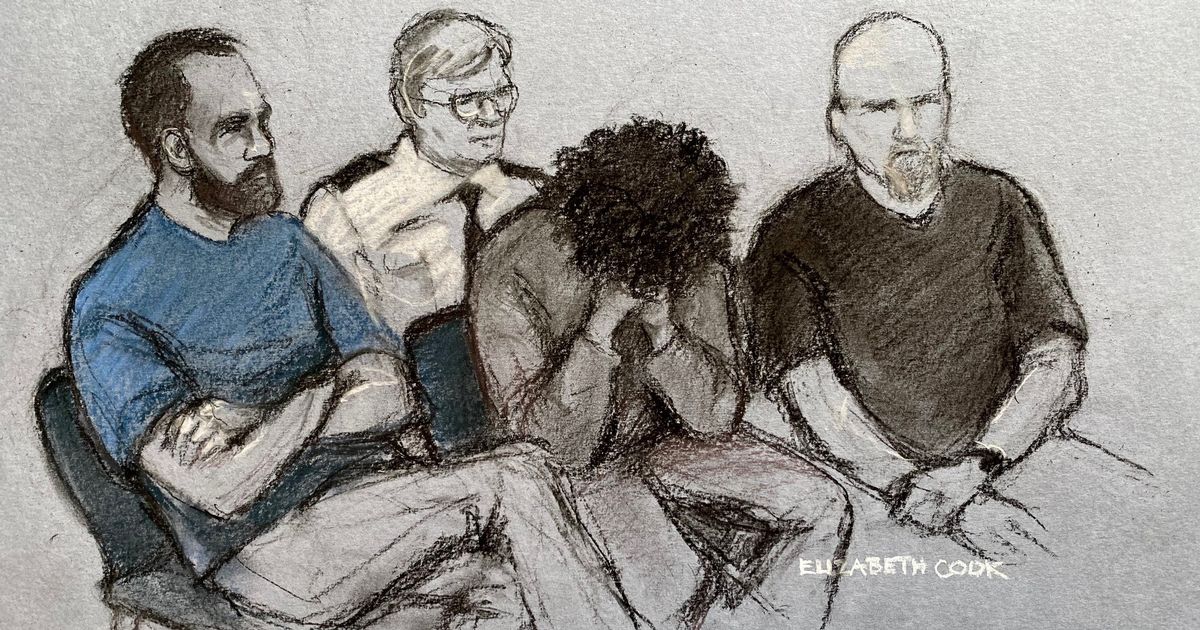A psychiatric expert told the Southport Inquiry the teenager was ‘out of parental control’ due to their lack of engagement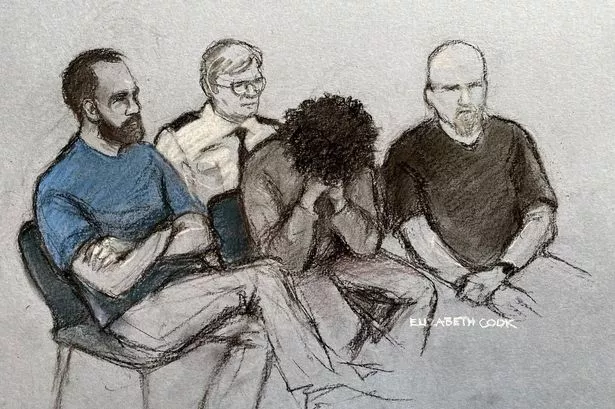 A court artist sketch of Axel Rudakubana (centre)
A court artist sketch of Axel Rudakubana (centre)
Axel Rudakubana should have been assessed under the Mental Health Act because of concerns about his parents’ compliance with services, an expert has told the Southport Inquiry. Dr Nina Irani, a consultant child and adolescent forensic psychiatrist instructed by the inquiry, said there should have been a safeguarding escalation in September 2023 because the teenager was “out of parental control”.
Southport killer Rudakubana had not been seen by Child and Adolescent Mental Health Services (CAMHS) for a number of months when he was visited at home by his psychiatrist, Dr Anthony Molyneux, on September 25. The ongoing inquiry heard the then 17-year-old had significantly withdrawn and was barely leaving the house, spending considerable periods of time on his computer and had not washed for a month.
Rudakubana withdrew from the living room and hid in his bedroom to avoid speaking with Dr Molyneux. The experienced psychiatrist previously told the inquiry he was “exasperated” by Rudakubana’s “chopping and changing” of engagement and the lack of boundaries which appeared to have been enforced by his parents, Alphonse Rudakubana and Laetitia Muzayire.
Dr Molyneux, who believed the threat Rudakubana posed to others was minimal, did not attempt to visit Rudakubana again. But Dr Irani said this incident should have prompted a Mental Health Act assessment to be carried out because Rudakubana had become more aggressive and there were concerns about his parent’s compliance and engagement with services.
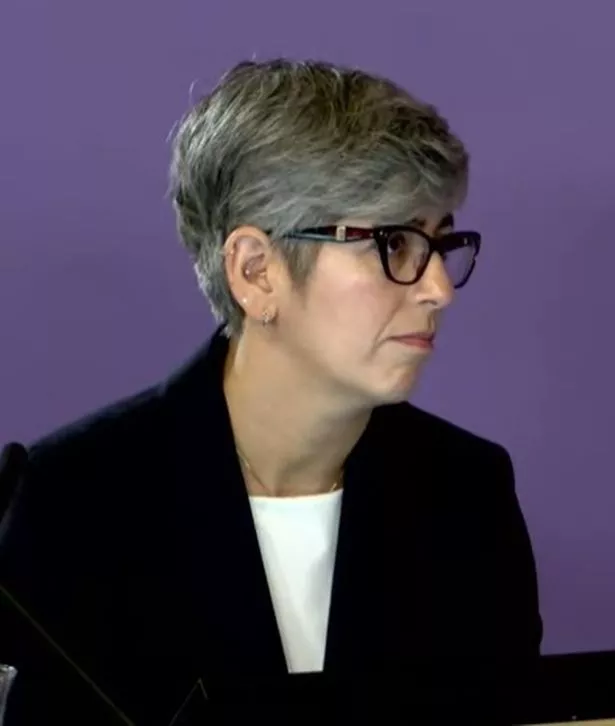 Dr Nina Irani, a consultant child and adolescent forensic psychiatrist who is an independent expert to the Southport Inquiry(Image: Southport Inquiry)
Dr Nina Irani, a consultant child and adolescent forensic psychiatrist who is an independent expert to the Southport Inquiry(Image: Southport Inquiry)
She told the inquiry on Wednesday: “In my opinion, given his historic risks and deterioration in his presentation, this should have prompted a Mental Health Act assessment. It is likely that there would be no evidence to suggest he needed treatment in hospital but it would have given an opportunity to assess him face-to-face and assess his risk to self and others with him.
“In my opinion, if the above had been considered earlier in September 2023 and he was then discharged with a clear escalation in safeguarding concerns to social services, then that would have been more appropriate, rather than his care remaining open for as long as it did without him being seen or the risk being assessed.”
An assessment under the Mental Health Act allows healthcare professionals to determine if someone has a mental disorder that requires detention in a hospital for examination or treatment.
Rudakubana, who is only being referred to as AR during the inquiry proceedings, was 17 when he murdered Elsie Dot Stancombe, seven, Bebe King, six, and Alice da Silva Aguiar, nine, and injured 10 other people at a Taylor Swift-themed dance party at the Hart Space in Southport on July 29 last year. The ongoing inquiry is examining his contact with state agencies including the police, schools and social services to see if there were missed opportunities to prevent the attack.
Giving his own evidence earlier this week, Dr Molyneux said an assessment would not have been considered and Rudakubana had “never characterised him as meeting criteria for a mental health service”. Disagreeing with Dr Irani, he added: “If young people present in that way was an indication for a Mental Health Act assessment, [they] would just be happening all over the place.”
Dr Molyneux told the inquiry that Rudakubana’s parents had “stage managed” the information presented to him and the CAMHS service to “a level I have never experienced before”. He said: “My sense was why as a service are we continuing to bang our head against the wall with this lad who has been deemed time and time again not to have a mental disorder and for whom this is primarily a social care issue of parents not being able to implement boundaries or willing to implement boundaries.”
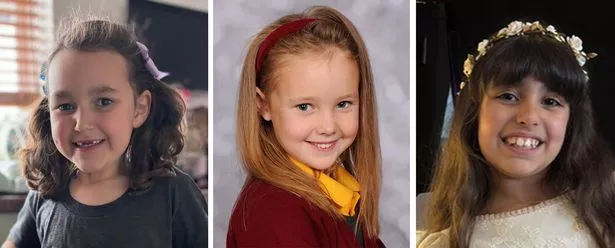 (left to right) Bebe King, Elsie Dot Stancombe and Alice da Silva Aguiar(Image: PA)
(left to right) Bebe King, Elsie Dot Stancombe and Alice da Silva Aguiar(Image: PA)
And when it was suggested that he had not done enough to get to the bottom of problem after the failed home visit, added: “I dispute that in its entirety…you can only go on the evidence that’s presented to you and if, as it later seems to have turned out with the benefit again of hindsight, if it was the case that the most salient evidence indicative of AR’s presentation was being evidently deliberately withheld from us, can that be a criticism levelled at clinicians?”
Senior inquiry to the counsel Nicholas Moss KC asked Dr Irani if Dr Molyneux and his colleague Dr Lakshmi Ramasubramanian would have expected Rudakubana’s parents to have been “open and honest about problems they were having”. Dr Irani said: “yes, this is what I would hope for, however, in most cases that is not what happens.” She said this is because parents have a “natural tendency” to underplay their child’s wrongdoings.
Proceedings have already heard how Rudakubana ordered more than a dozen weapons including machetes and knives via online retailers. His parents appeared to have been aware of his orders as Alphonse Rudakubana confiscated two of the machetes off his son and hid them away.
Asked by Mr Moss if Rudakubana’s parents should have revealed more to CAMHS about the delivery of weapons to the family home, Dr Irani said: “More than CAMHS, I would have thought they would have picked up the phone to the police.” The doctor said an important lesson to be taken from the inquiry is that parents are educated about the consequences of not reporting matters before they escalate further.
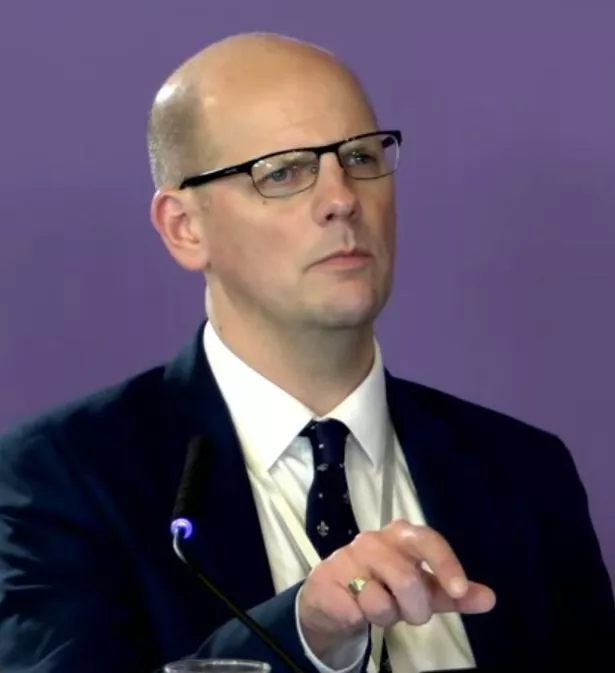 Dr Anthony Molyneux, of Alder Hey Children’s NHS Foundation Trust(Image: Southport Inquiry)
Dr Anthony Molyneux, of Alder Hey Children’s NHS Foundation Trust(Image: Southport Inquiry)
Dr Molyneux had intermittent contact with the teenager’s family until April 2024 when he moved to discharge the teenager from the CAMHS service. Dr Irani said Rudakubana’s lack of physical presentation in the early half of 2024 should have again prompted an assessment under the Mental Health Act.
But she said both Dr Ramasubramanian, who handed over the case due to concerns about Rudakubana’s “intimidating” dad, and Dr Molyneux made “far more attempts to see AR in person and visit him at home than most clinicians would”.
Dr Irani said the decision to discharge Rudakubana from the service could have been made earlier than it was because he wasn’t taking his prescribed medication or engaging with his clinicians. He was eventually discharged approaching his 18th birthday on July 23 – six days before he carried out the dance party attack. He had been deemed to pose no threat to others.
Rudakubana, who was described as presenting as an “unremarkable, sullen, untalkative, gawky teenage boy” in his CAMHS assessments, was sentenced to life with a minimum term of 52 years after admitting the dance party offences on the first day of his trial in January.
The first phase of the inquiry, which is expected to run until November, continues.

